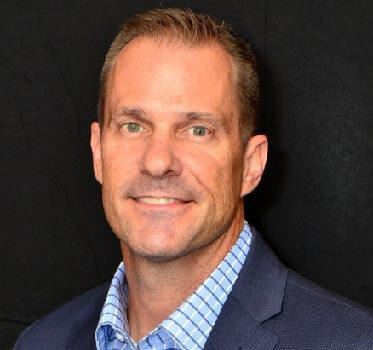Navigating negotiations in sales is like being part of an intricate, ongoing conversation where every word, pause, and expression can swing the balance. It ultimately affects your bottom line, so you need to invest in your ability to negotiate like the pros if you want to get paid like one.
Two prevalent negotiation tactics are Good Person/Bad Person and Promise of Escalation. Both require a keen ear and a steady, strategic response.
How To Work Through The Promise Of “Opportunity” Escalation
This one is a classic margin killer.
"If you give me a discount on this project/service, then I know we will have a lot more business coming your way in the future."
Never get distracted by the promise of future business. That is irrelevant now. Sales is a conversation between adults to find the truth. If it's a good idea to work together now, then do it.
What might happen in the future doesn't matter. Do not do a skinny deal to get your foot in the door, or you'll never be compensated correctly by this client.
For this gambit, we only need to work through steps one and two from the previous formula since it's usually deployed before we even get to the negotiation phase.
Step 1: ARA (Acknowledge, Reassure, Ask)
- Acknowledge: "It's great to hear there's potential for more business."
- Reassure: "Our aim is to build a lasting, beneficial partnership."
- Ask: "How about we do this? Let’s get started on this first opportunity, and if all goes well, we can discuss any volume pricing as our work together expands, fair?"
Step 2: Struggle and Redirect
"Obviously, we both want this partnership to grow, so I wouldn’t want to enter into this relationship having to alter our deliverable to meet a lower price point. I’m curious, is meeting the 2nd quarter deadline still a priority?”
Understanding Good Person/Bad Person
You're deep in a discussion when, suddenly, your counterpart plays the Good Person/Bad Person card.
"I'm all for this, but my colleague isn't convinced."
Don't be alarmed. This is simply a tactic. If you're prepared, you can deal with it using a simple three-part formula.
Step 1: ARA (Acknowledge, Reassure, Ask)
- Acknowledge: "I see that there's a difference in opinion with [Name]."
- Reassure: "That's not uncommon, and I appreciate you being upfront about it."
- Ask: "Could you share which aspect [Name] is most concerned about?"
Step 2: Struggle and Redirect
- Option 1: "I'm not sure how we should proceed. If we stopped now, would doing nothing be a viable option for you?"
- Option 2: "A unified team is crucial for us. If there's no consensus, perhaps it's best not to move forward right now."
Step 3: Concessions (Give to Get)
"Let's arrange a meeting with all parties involved. We'll work together to find a solution that suits everyone. If we can't come to an agreement, we won't move forward."
You can change the formula's wording to fit your personality and speak directly to your prospect, but the general formula is the same. Always watch your tone and delivery, as that can be what helps this come across as genuine and caring, not cold and calculated.
Be Prepared And Cautious
In sales and negotiations, things move fast. If you're not prepared and staying sharp on all your critical communication skills, it's easy to miss things and lose valuable margins or even entire deals.
No matter what tactic you're facing, stay engaged, don't let it rattle you, and don't let your emotions dictate your actions.
Like a golfer assessing the green, consider each stroke carefully and respond in a way that keeps the dialogue open and constructive. For deeper insights, check out my book 'Negotiating from the Inside Out.' And if you're looking for tailored guidance in your sales journey, our team is here to help.

Clint Babcock
Clint has nearly 25 years of experience developing and directing organizations' recruiting and sales strategies, as well as coaching and mentoring "C-level" executives. His expertise is in training inside and outside consultative sales teams in new business development, profit and loss management, sales compensation, key account management, and product/service positioning. Specialties include corporate sales training, public speaking, hiring assessments, and business development structuring.






